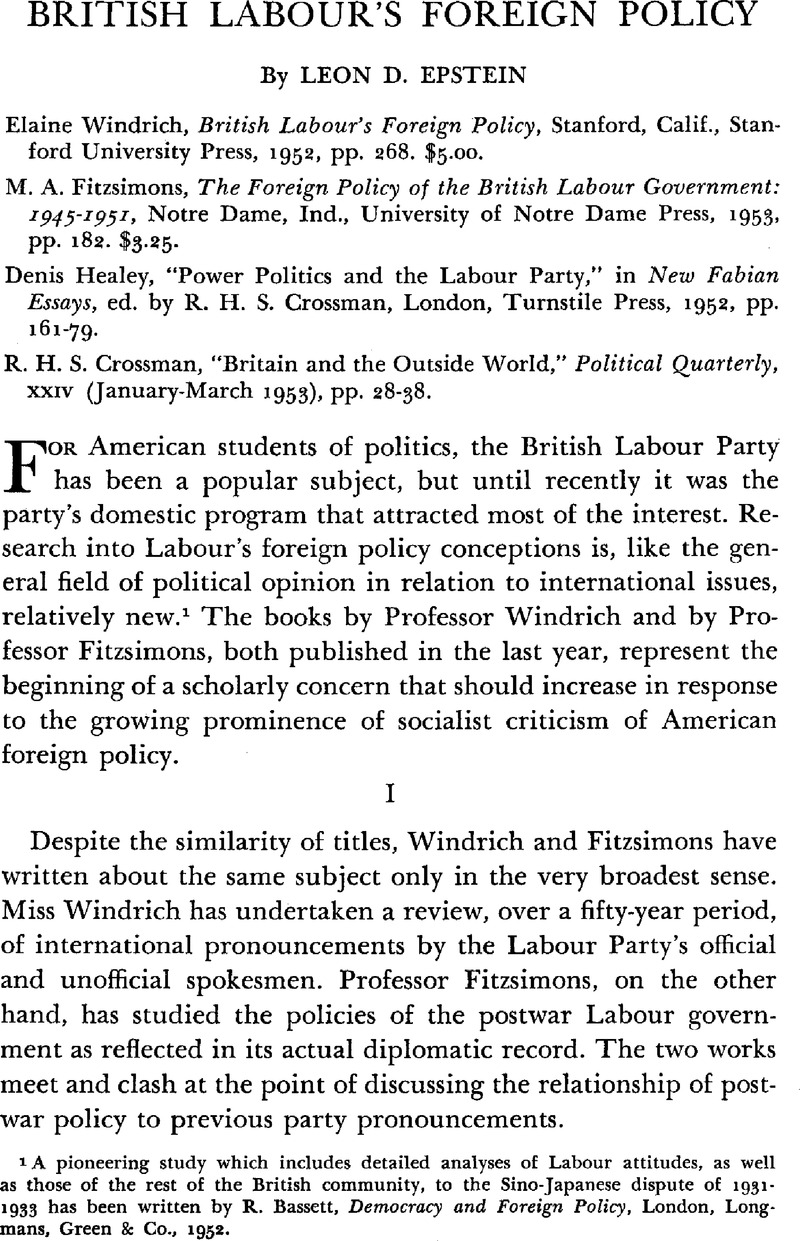No CrossRef data available.
Article contents
British Labour's Foreign Policy
Review products
Published online by Cambridge University Press: 18 July 2011
Abstract

- Type
- Review Articles
- Information
- Copyright
- Copyright © Trustees of Princeton University 1953
References
1 A pioneering study which includes detailed analyses of Labour attitudes, as well as those of the rest of the British community, to the Sino-Japanese dispute of 1931–1933 has been written by Bassett, R., Democracy and Foreign Policy, London, Longmans, Green & Co., 1952.Google Scholar
2 The debate and the vote on the decision to support the Chamberlain government's rearmament program are contained in the 37th Annual Report of the Labour Party London, 1937, pp. 195–212. In some respects, the discussion furnishes a parallel to the more recent conflicts over rearmament in the Labour Party. Aneurin Bevan, incidentally, was among the speakers who opposed the party's decision of 1937.
3 This is recognized, for instance, in a moderate and serious editorial, “A Socialist Foreign Policy?”, Socialist Commentary, XVI (October 1952), pp. 217–19. Members of the Labour Party are said to be looking in vain for a unique social foreign policy, but it is urged that socialists can, along with others, pursue a policy consistent with their general humanitarian beliefs. Probably this point of view is accepted by many at the Right and Center of the party.
4 The Labour Party's discussion pamphlet, Problems of Foreign Policy (London, 1952), represented an attempt to encourage a reorientation among the constituency parties, among whom the pamphlet was circulated before the 1953 party conference. However, the resolutions subsequently presented by the constituency parties bore little evidence of the central organization's new point of view.
5 Crossman's various ideas about international affairs are also reflected in the New Statesman, for which he writes regularly.
6 A discussion of the interplay of politics and foreign policy, as it affects Anglo-American relations, is undertaken by Roberts, Henry L. and Wilson, Paul A., Britain and the United States, New York, 1953, ch. 2.Google Scholar
7 Labour Party, The International Post-War Settlement, London, 1944.Google Scholar
8 51st Annual Report of the Party, Labour, London, 1952, p. 154.Google Scholar


